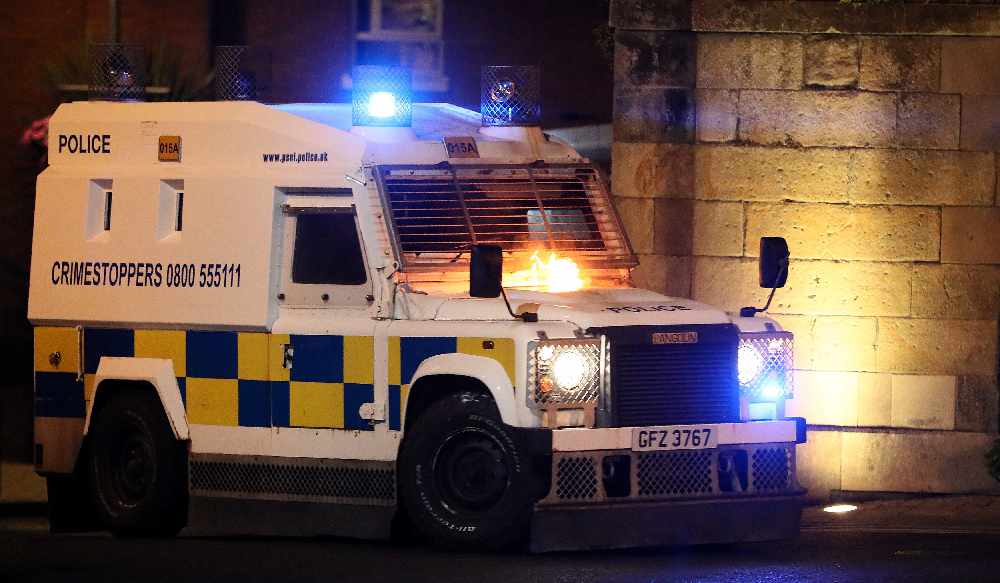
By David Young, PA
Imposing tougher sentences for those guilty of killing public servants risks creating a hierarchy of victims in Northern Ireland, the Assembly was told.
Alliance Party MLA John Blair asked if it was fair that if a police officer and civilian were killed in the same incident their deaths could attract different punishments in the courts.
He was contributing to a debate tabled by the DUP calling for longer sentences for anyone convicted of attacks on public servants.
The DUP motion highlighted the campaign by the Lissie Harper, the widow of Pc, who has called for whole life sentences for police killers in England.
The party also noted the 40-year tariff handed to the man recently convicted of the capital murder of Garda Adrian Donohoe in the Irish Republic.

The DUP said sentences in Northern Ireland needed to be beefed up to replicate those handed down in other jurisdictions.
Mr Blair cautioned against creating a “disparity” in sentencing.
“For example, this disparity would differentiate I would imagine between the sentencing and killing of a police officer or another services officer in a public incident and the sentencing of the killing of a by-standing civilian possibly on the same day, in the same street and in the same overall set of circumstances,” he said.
“This creates no doubt a hierarchy of victims.
“Such a move as described is a disservice to fairness and victims alike.
“There should be no difference in the sentence for murder.”
DUP MLA Mervyn Storey said there was a need for strong action against those who targeted public services.
“We have a society that seems to have more emphasis on human rights than human wrongs, that is an industry that needs to be radically changed,” he said.
“But then of course when we say that we are being accused of being extremists, we’re way out there, far right, that’s an awful place to be.
“Tell the victims that, who are those who have to suffer as a result of these actions.
“And I think they are more prepared to accept that when you stand before the court, you will get a sentence that is fit for purpose and reflects the crime that was committed.”
Responding to the debate, Justice Minister Naomi Long said all the issues raised would be examined in an ongoing review of sentencing policy in the region.
She cautioned against setting minimum tariffs in law, insisting judges should be left to decide appropriate punishments against sentencing guidelines on a case-by-case basis.
“I’m also clear that there will be exceptional cases from time to time where the near equivalent of a whole life sentence may be absolutely appropriate and our current structures do allow for that eventuality,” she added.
“However, thankfully such cases remain limited.
“We must however guard against a populist approach, however superficially attractive, to sentencing that would lead to the situation prevalent in places such as the United States and Russia, where draconian sentencing has done little in practice to improve public safety.”
At the close of the debate, the initial DUP motion calling for MLAs to support tougher sentences for those who attack public services was altered by an Alliance amendment.
The successful amendment noted the seriousness of such attacks and the important contribution made by victims but said the issue needed to be assessed in the sentencing review being carried out by the minister.
The motion, as amended, was passed in an oral vote without any dissenting voices.


 Bikers to descend on Westminster for veterans protest against Legacy Act repeal
Bikers to descend on Westminster for veterans protest against Legacy Act repeal
 Guidance sought over future of colourful parakeets in Belfast park
Guidance sought over future of colourful parakeets in Belfast park
 Woman released after questioning over pipe bombs in Co Down
Woman released after questioning over pipe bombs in Co Down
 Suspended chief constable will not be prosecuted over alleged sexual offences
Suspended chief constable will not be prosecuted over alleged sexual offences
 MI5 files not deliberately withheld from Stakeknife probe, review concludes
MI5 files not deliberately withheld from Stakeknife probe, review concludes